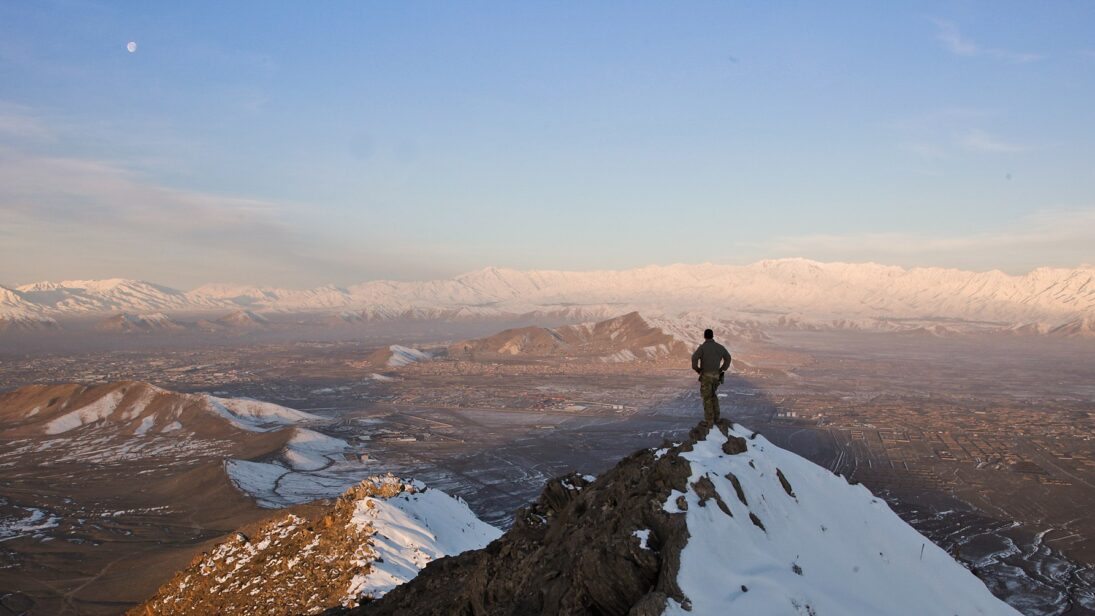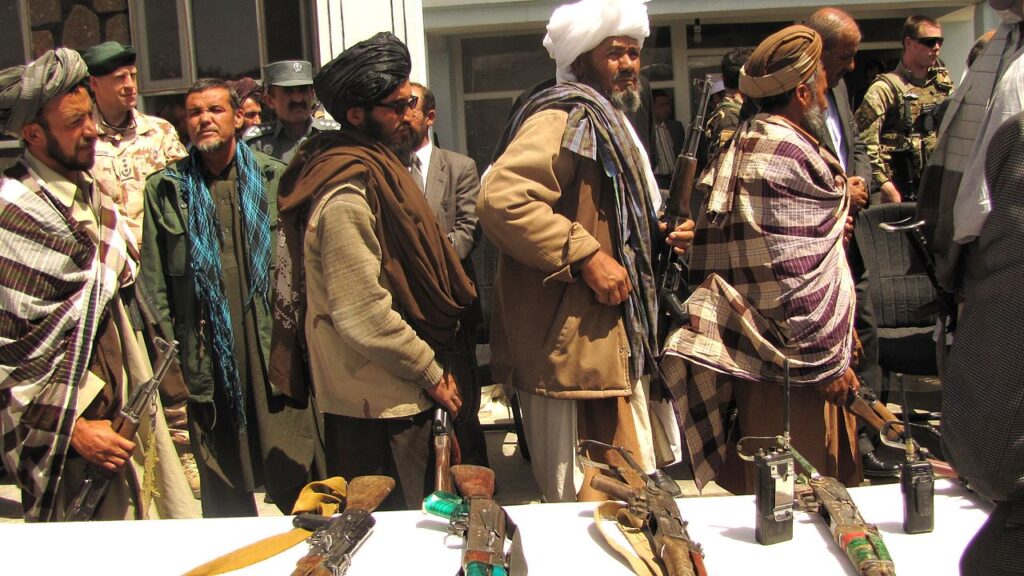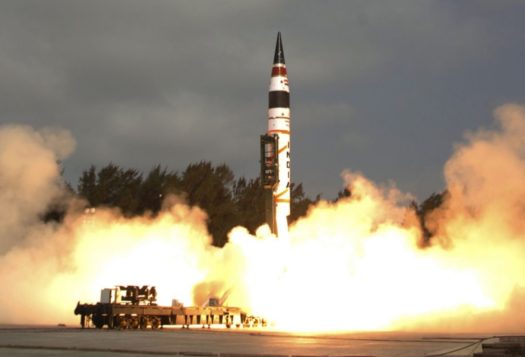
February 15 marked six months since the Taliban’s rapid takeover and control of Kabul following the U.S. and NATO troop withdrawal in August 2021. The region has been left with an uncertain security environment since, with Russia, China, India, Pakistan, and Central Asian states accelerating their attempts to establish some form of political and diplomatic ties with the Taliban, promising humanitarian assistance while tolerating the militant group’s de facto government. While states have engaged with the Taliban, there is a lack of clearly-communicated foreign policy goals, especially in the context of countering transnational militancy and terrorism that have previously originated from a Taliban-controlled Afghanistan. This lack of consensus on common security goals amongst regional states and their attempts to manufacture strategic depth in post-NATO withdrawal Afghanistan is likely to lead to a range of security repercussions.
Taliban-controlled Afghanistan has a notorious history of extending safe havens and operational support to transnational terror groups, including the Tehreek-e-Taliban Pakistan (TTP), al-Qaeda, the Turkistan Islamic Party (TIP), Katibat al-Tawhid-wal-Jihad (KTJ), Lashkar-e-Taiba (LeT), Jaish-e-Mohammed (JeM), and the Islamic Movement of Uzbekistan (IMU). Through forums including the Shanghai Cooperation Organization (SCO) and the Collective Security Treaty Organization (CSTO), regional states have reiterated their calls for the Taliban to ensure that terrorism does not emanate from Afghanistan. Six months after the Taliban takeover, India and Pakistan have each navigated transnational militancy challenges. Engagement with the Taliban, however, presents a multilayered challenge. If states stop engaging with the Taliban, Afghan soil can become a more conducive sanctuary for resurgent transnational militant groups operating in the region. However, engagement with the Taliban offers international legitimacy to the militant group with no explicit guarantees that the Taliban can establish their writ over Afghan soil or is willing to lose support of other militant groups.
Difficult Choices for the Taliban
The Taliban has been a inspiration and liaison to extend recruitment, ideological, and financial support to local and other internationally recognized terrorist groups operating in the region. The TTP, TIP, and KTJ, released video messages congratulating the Taliban in August 2021, interpreting the takeover as a common victory for radical Islamist militant groups. The leader of Jaish-e-Mohammed (JeM) also released a congratulatory statement for the Taliban. These groups are believed to have provided material support to the Taliban during their fight against U.S. and NATO forces. The TTP has shown a quick resurgence in erstwhile Federally Administered Tribal Area sand Balochistan regions of Pakistan bordering Afghanistan since the NATO withdrawal of 2021.
While the Taliban took some cosmetic measures against the TIP (a primary focus of China) by moving fighters from Afghanistan’s eastern border areas to the north, it is unlikely that the Taliban will take further action because they risk experiencing blowback. Transnational groups operating in Afghanistan have kept a separate identity from the Taliban. However, due to ideological alignment and established family relationships through inter-marriages and other socio-cultural ties, many links of Taliban fighters and transnational militant groups are so salient that any strict action by the Taliban against these elements will create resentment and cause defections to other groups, mainly IS-K. Furthermore, the Taliban stands to lose rapport, financing, and recruitment bases by undertaking strict action against previously friendly groups. However, by not taking credible action against transnational groups—or other demands from the international community involving forming an inclusive government, respecting human rights, and enabling women’s education—the Taliban risks economic and political isolation in the long term.
However, the Taliban must make difficult decisions to realize these ambitions. While seen as a success story for many militant groups, the Taliban must now decide whether they crackdown on militancy in exchange for more global support or recognition or keep up these ties.
This dilemma deepens for the Taliban, particularly if they want to move beyond humanitarian assistance and earn political and financial support. Mega-projects such as Turkmenistan-Afghanistan-Pakistan-India Pipeline (TAPI) and proposed China-Pakistan-Economic-Corridor’s (CPEC) connectivity via Afghanistan to Central Asia are avenues to align regional foreign policies towards Afghanistan while reviving a war-torn economy. However, the Taliban must make difficult decisions to realize these ambitions. While seen as a success story for many militant groups, the Taliban must now decide whether they crackdown on militancy in exchange for more global support or recognition or keep up these ties.

Regional Ramifications
Prior to the Taliban takeover, India had invested over USD $3 billion to help rebuild Afghanistan’s infrastructure and energy capacity—which is under threat with a new Taliban government. India’s distrust of the Taliban was visible in August 2021 when it removed it joined all countries except Pakistan, China, and Russia in closing its embassies and removing its diplomats and citizens from Afghanistan. Soon afterward, however, India publicly acknowledged holding diplomatic meetings with the Taliban in Doha, saying the discussion related to Indian nationals in Afghanistan. New Delhi has also reportedly held back-channel discussions with the Taliban for counterterrorism assurances. India’s recent constitutional revisions on Articles 370 and 35A were followed by a prolonged curfew in Kashmir, which has re-legitimized the operational and recruitment capacity of Kashmir-focused transnational groups like LeT and JeM. These groups have a history of endorsement and reliance on the Taliban for sanctuary, training, and recruitment. Pakistan’s continued engagement with the Taliban may also cede space for India to establish a basis for using economic and diplomatic leverage against the group for its interests.
Pakistan’s engagement with the Taliban has changed significantly over the last few years, particularly in the wake of its national-level counter-terrorism initiatives against the TTP, military operations, and border fencing. It still faces significant challenges emanating from Afghanistan, most notably the TTP, who are showing a quick resurgence. The Taliban releasing hundreds of TTP members—including former leadership—from Afghan prisons in August 2021indicated that Pakistan’s expectation that the Taliban would crackdown on the TTP may have been misplaced. The Taliban have also shown resistance towards Pakistan fencing its Afghanistan-Pakistan border by launching attacks on check posts.
Internally, Pakistan faces ethnopolitical grievances from its Pashtun population, who seethe fencing project to cut tribal links that will force displacement and hinder cross-border trade. The TTP has used local grievances against the Pakistan government to recruit militants and launch an insurgency. Both the TTP and the Taliban capitalize on tribal linkages to seek refuge along the border. Pakistan sought a Taliban-mediated truce with the TTP in November 2021, which they negotiated at Khost, Afghanistan, with reports that Sirajuddin Haqqani—a designated terrorist by the United States—acted as the chief mediator. As Minister of Interior under Taliban-led government, Sirajuddin Haqqani’s role showed the continued importance of the Taliban’s most lethal arm, which could be used to contain or embolden their leadership and cadre in the future.
Regional states should have a clearly communicated foreign policy on the Taliban and use joint forums like the SCO and CSTO to create a collective regional security narrative amongst states who face threats from different extremist groups.
Having failed to cooperate directly with the Taliban, Pakistan and India have also looked for a regional approach to address their concerns about international terrorism emanating from Afghanistan. New Delhi recently hosted the India-Central Asia Summit to bolster joint counter-terrorism exercises, and Islamabad hosted the Organization of Islamic States in December. Pakistan has also hosted a “troika plus” meeting on Afghanistan with representatives from the United States, China, and Russia. Pakistani Prime Minister Imran Khan has also scheduled a visit to Moscow this month, with security cooperation a key foreign policy goal.
The Road Forward
Moving forward, states will not be able to afford complete disengagement with the Taliban since a fallout may further embolden transnational terror groups. Regional states should have a clearly communicated foreign policy on the Taliban and use joint forums like the SCO and CSTO to create a collective regional security narrative amongst states who face threats from different extremist groups. This may encourage state accountability by aligning foreign policy goals between rival states. Otherwise, zero-sum games between adversarial states like India and Pakistan may ensue again as they compete to extend influence in Afghanistan (proxy wars being just one manifestation).
One possible drawback of engaging with the Taliban is the tacit endorsement of the former insurgent groups as state representatives. The international community has refused to do so because of the Taliban’s involvement in militancy and terrorism. However, holding the Taliban accountable requires responsible strategic intervention by regional states in Afghanistan. One possible way forward is to make financial or political support for long-term peacebuilding in Afghanistan contingent on the Taliban meeting pre-communicated conditions, including an opening of dialogue between political rivals for a de jure central Afghan government, unhindered presence of human rights groups and international media, disarmament of ethnic militias, and restructuring national civil and military institutions such as the parliament, judiciary, press, and the security forces. The Taliban’s recent visit to Oslo reflects its leadership’s inclination towards state-level engagement and harnessing any form of support. This is an opportunity for regional and international states to work on mutually agreeable conditions for peace and stability. Once polarity is reduced, and shared interests are identified, the Taliban may be brought on board to address transnational terror challenges emanating from Afghanistan.
***
Image 1: DVIDSHUB via Wikimedia Commons
Image 2: Isafmedia via Wikimedia Commons


